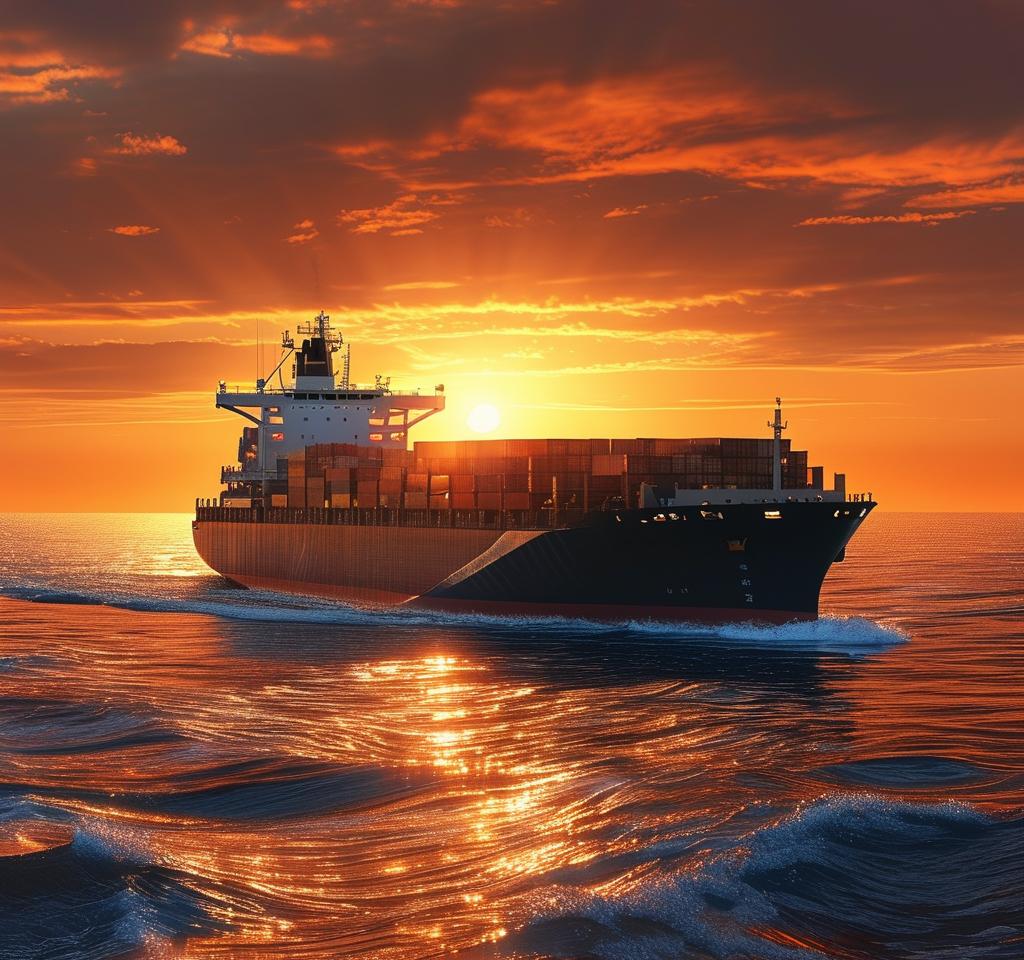- By TOP CHINA FREIGHT
- July 16, 2025
- Shipping
Sea Freight for Bulk Cargo: Why south korea Importers Prefer It?
Trade between China and South Korea is fast-paced and high-volume, supported by geographic proximity and strong economic ties. For businesses shipping goods between the two countries, ocean freight remains the most cost-effective, reliable, and scalable option—especially for bulk shipments, regular imports, and heavy items.
In this guide, we’ll explore the benefits of ocean shipping from China to South Korea, covering the typical cost, sea routes, logistics process, and frequently asked questions.

1. Cost-Effective for Bulk Cargo
Ocean freight is by far the most economical shipping method for large-volume or heavy goods. While air freight may deliver faster, its cost per kilogram is significantly higher. Ocean freight allows businesses to maximize shipping volume while keeping logistics budgets under control.
Typical Cost of Ocean Shipping from China to South Korea
Thanks to short transit distances and frequent sailings, ocean freight between China and South Korea is relatively low in cost.
| Shipping Mode | Estimated Cost (USD) |
|---|---|
| LCL (Less than Container Load) | $30–$70 per CBM |
| FCL 20-foot Container | $400 – $900 |
| FCL 40-foot Container | $700 – $1,200 |
| Customs Clearance (both sides) | $100–$200 per shipment |
| Door-to-Door Delivery (optional) | Quoted based on pickup/drop-off cities |
These are estimates; rates fluctuate based on season, carrier, and container availability.
2. Flexible Container Options
Whether you’re a small business or an enterprise, ocean shipping offers solutions tailored to your needs:
- FCL (Full Container Load): Exclusive use of a 20ft or 40ft container for bulk or high-volume cargo.
- LCL (Less-than-Container Load): Share a container and pay only for the space you use—ideal for smaller shipments.
- Reefer, Open-Top, Flat Rack Containers: For special goods like perishables, oversized machinery, or sensitive equipment.
3. Main Sea Route from China to South Korea
Shipping between China and South Korea typically involves short-haul sea routes in the East Asia region. Direct routes and high-frequency services make for fast and efficient shipping.
| Route Segment | Details |
|---|---|
| Departure Ports (China) | Shanghai, Qingdao, Ningbo, Dalian, Tianjin, Yantai |
| Sea Route | Yellow Sea or East China Sea ➜ Direct to major South Korean ports |
| Arrival Ports (South Korea) | Busan (largest), Incheon, Gwangyang, Pyeongtaek |
| Transit Time | Typically 1–4 days, depending on port combinations and schedule |
4. End-to-End Logistics Support
Despite the short distance, international shipping requires coordination. Freight forwarders offer full logistics solutions from the factory in China to the final destination in South Korea.
| Stage | Services Provided |
|---|---|
| Supplier Pickup | Trucking from Chinese factory to the port |
| Export Customs Clearance | Document preparation, HS code classification, declarations |
| Ocean Freight Booking | FCL or LCL space reservation, sailing schedule management |
| Port Handling & Loading | Container stuffing, port fees, bill of lading issuance |
| Sea Transit | Real-time tracking, delay updates |
| Import Clearance in Korea | Customs declaration, KCS processing, VAT/duty management |
| Final Delivery (optional) | Trucking to warehouse, retailer, or fulfillment center |
| Optional Services | Warehousing, palletization, consolidation, cargo insurance |
5. Sustainable & Scalable Shipping
Ocean shipping is significantly more energy-efficient than air freight, making it the more environmentally responsible choice. For businesses aiming to lower their carbon footprint while still moving large volumes, sea freight is the most sustainable solution.
And thanks to increasing automation at ports and smart logistics systems, ocean shipping is now faster and more flexible than ever before.
Need a Shipping Quote?
Click below to get a free, no-obligation quote from TJ China Freight.
We’ll respond within 24 hours with the best shipping options for your cargo.
FAQ
Q1: How long does ocean freight take from China to South Korea?
Transit time is 1 to 4 days, depending on the origin and destination ports.
Example: Qingdao ➜ Busan: ~1–2 days.
Q2: Is ocean shipping cheaper than air freight?
Yes. For any shipment above 300 kg or more than 1 CBM, ocean freight is significantly cheaper than air freight.
Q3: What are the major South Korean ports for imports from China?
- Port of Busan – Largest and most commonly used
- Incheon Port – Convenient for the Seoul metro area
- Gwangyang & Pyeongtaek Ports – Alternatives for regional access
Q4: Are there import duties in South Korea?
Yes. Import duties vary by HS code. Most consumer goods have low to moderate duty rates, and VAT is generally 10%.
Q5: Do I need a Korean importer or license?
Yes. Either your business or your customer in South Korea should be a registered importer. Freight forwarders often provide import agent services if needed.
Q6: What documents are required for ocean shipping?
You’ll need:
- Commercial Invoice
- Packing List
- Bill of Lading
- Certificate of Origin (if required)
- Import declaration documents for Korean Customs
